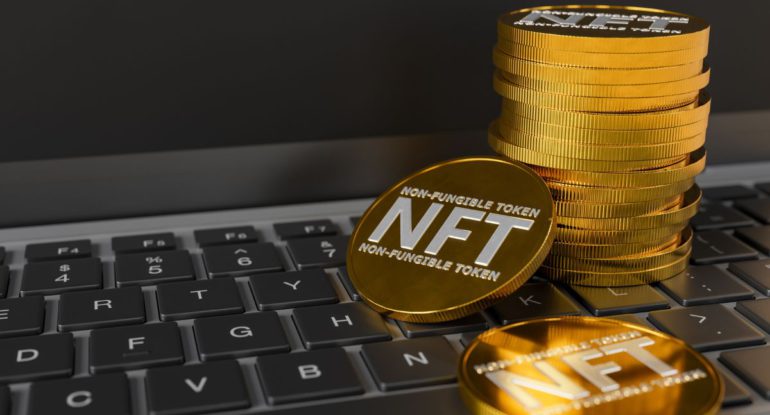NFT Tokens And Gaming Industry: Top 10 Ways NFT Tokens Are Changing The Gaming Industry

NFT tokens have been the talk of the town in the gaming industry lately. These digital assets have revolutionized the way games are played, bought, and sold. NFTs are unique digital assets that are stored on a blockchain, making them one-of-a-kind and impossible to replicate. This means that players can own rare and unique in-game items, and game developers can create digital assets that are truly unique.
NFTs have transformed the gaming industry in countless ways. They have created a new economy for in-game items, facilitated crowdfunding for game developers, and provided players with true ownership of their assets. The impact of NFTs on gaming has been so significant that many game developers have already begun incorporating them into their games. This article will explore the top 10 ways NFT tokens are changing the gaming industry.
From providing players with greater control over their in-game assets to creating new revenue streams for game developers, NFTs are changing the way we interact with games. We will take a closer look at each of these benefits and how they are shaping the future of gaming. So let’s dive in and explore the exciting ways in which NFTs are changing the gaming industry.
The Potential Synergy of Theta Network and Sony: Revolutionizing NFTs in the #Gaming Industry
The non-fungible token (NFT) space has seen rapid growth, opening up new avenues for collaboration between major players in the gaming and blockchain industries. With Sony’s recent… pic.twitter.com/7ejTEIpYZ3
— Larry (@Larry63204614) March 27, 2023
The top 10 ways NFT tokens are changing the gaming industry, including:
1. Creating a New Economy for In-game Items
NFTs have enabled game developers to create a new economy for in-game items. Players can buy, sell, and trade NFTs, providing them with more control over their in-game assets. This has also opened up new revenue streams for game developers, allowing them to earn more money from the sale of in-game items.
2. Providing True Ownership of In-game Assets
NFTs allow players to have true ownership of their in-game assets. This means that players can transfer their assets across different games, sell them for real-world money, or even gift them to other players.
3. Enabling Cross-game Compatibility
With NFTs, game developers can create assets that are compatible with different games. This allows players to use the same asset across multiple games, creating a seamless gaming experience.
4. Enhancing In-game Interactions
NFTs can be used to enhance in-game interactions between players. For example, game developers can create NFTs that represent in-game achievements or milestones. These NFTs can be displayed on a player’s profile, visually representing their in-game accomplishments.
5. Offering Greater Creative Freedom
NFTs, offer game developers greater creative freedom when creating in-game assets. Developers can create unique and rare assets that are more valuable to players, increasing engagement and retention.
6. Encouraging Player Loyalty
NFTs can encourage player loyalty by providing rewards for long-term engagement with the game. For example, game developers can create NFTs that are only available to players who have been active in the game for a certain amount of time.
7. Facilitating Crowdfunding
NFTs can be used to facilitate crowdfunding for game development. Game developers can create NFTs that represent shares in the game’s development, allowing players to invest in the game’s development and earn a share of the profits.
8. Creating a New Market for Gaming Collectibles
NFTs have created a new market for gaming collectibles. Players can collect rare and unique NFTs, similar to collecting trading cards or other collectibles. This has opened up new revenue streams for game developers and provided players with a new way to engage with the game.
9. Creating a Transparent and Secure Marketplace
NFTs provide a transparent and secure marketplace for in-game items. Players can be sure that the assets they are buying are authentic and secure, and game developers can be sure that their assets are being sold for a fair price.
10. Providing New Opportunities for Blockchain Integration
NFTs provide new opportunities for game developers to integrate blockchain technology into their games. This can lead to more secure and transparent in-game economies, more engaging and innovative gameplay mechanics, and greater creative freedom for game developers.
Also, read – 4 Key Trends Of NFT Gaming That Will Be Big In 2023
In conclusion
NFT tokens are changing the gaming industry in numerous ways. They are creating new opportunities for game developers to create engaging, interactive, and profitable games while also providing players with greater control over their in-game assets. NFTs have created a new economy for in-game items, enabled cross-game compatibility, and provided players with true ownership of their assets. They have also created new revenue streams for game developers, facilitated crowdfunding, and created a transparent and secure marketplace for in-game items.
The future of gaming looks bright with the integration of NFTs. As more game developers adopt this technology, we can expect to see more innovative and engaging games that provide players with greater control and ownership over their in-game assets. NFTs are not just a trend in the gaming industry but a new gaming era that will change how we play, interact, and engage with games.




























































